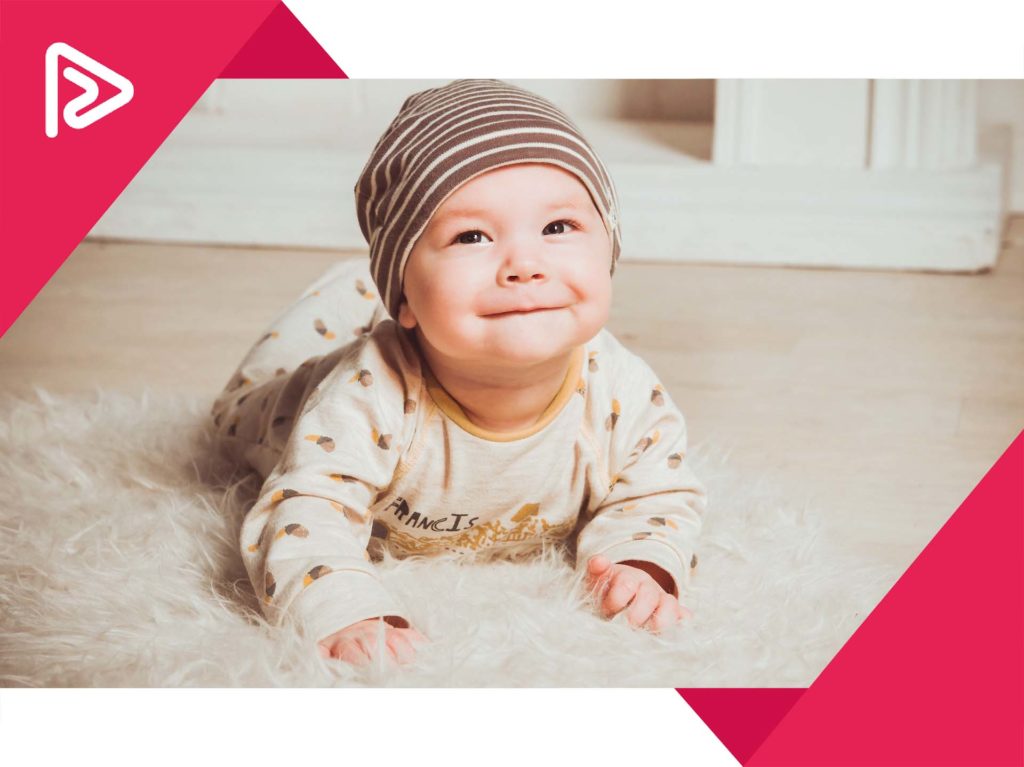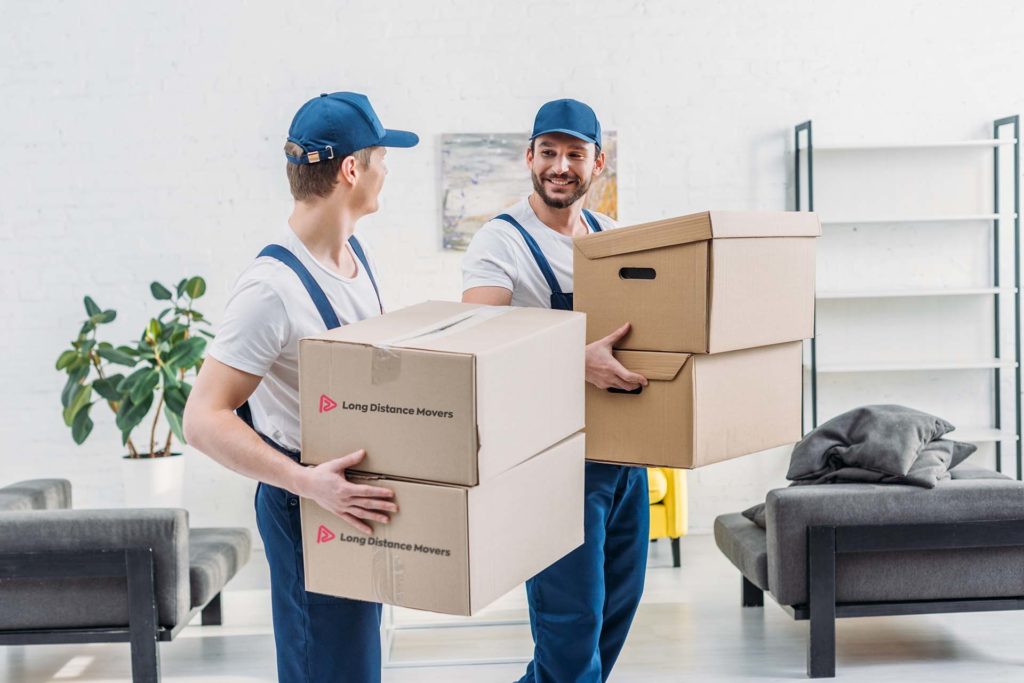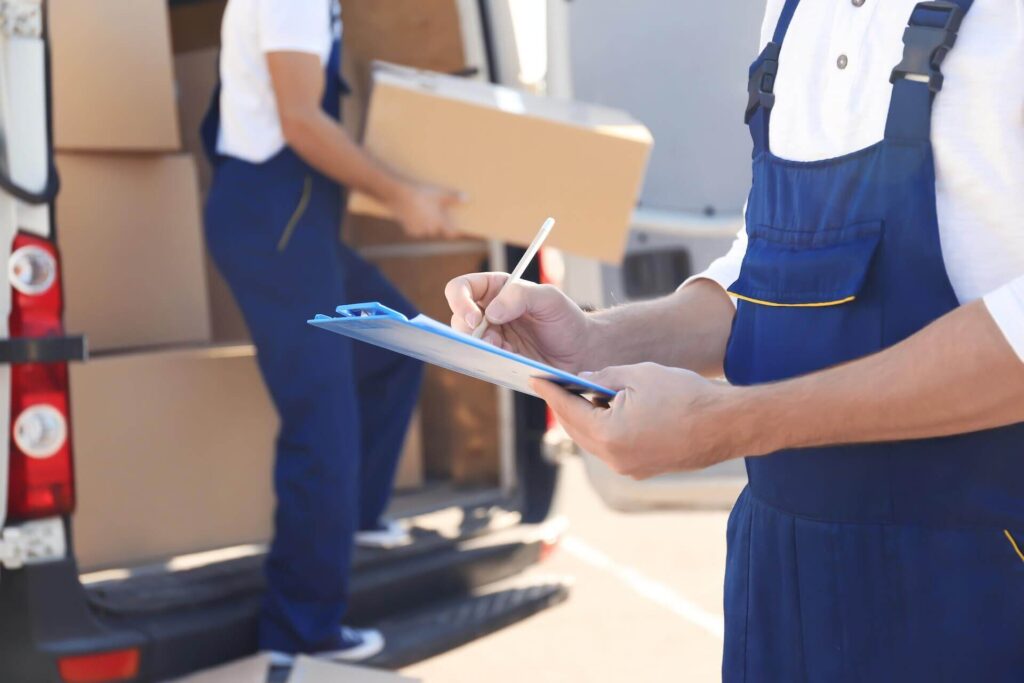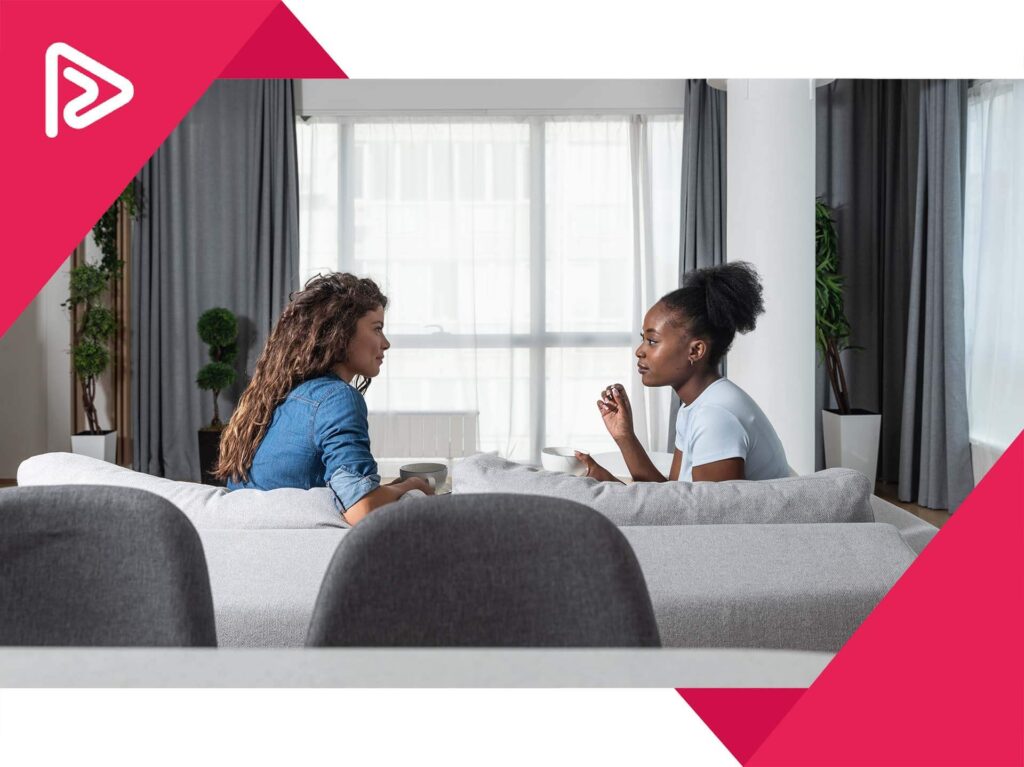Posted in
After the Move, How-to, Moving Essentials
on April 6, 2021

Anastasia Hill
Apart from being the next fashion icon, Anastasia is also a freelance writer and expert on moving (and packing clothes).
How to Baby Proof House and Protect Your Toddler Like a Superparent
Parents truly are superheroes, and their kids are their weakest spots. If you’ve just hired cross-country movers and relocated to a new home, you’d probably want to know how to baby-proof a house and keep your child safe. Since it’s impossible to keep an eye on the kid 24/7, the best you can do is make sure that all dangerous items and places are out of reach. Here’s what you should do to stay the super parent you are and protect your toddler after getting long-distance moving services.
If you’ve made your relocation to-do list, learned all the moving hacks, and finally moved, you probably need to write down all the baby-proofing essentials if a child is coming along. We got your back – take a look at which items should be on your new apartment checklist if you’re expecting or planning on cross country moving with kids.
Learn How to Baby Proof House, but Don’t Panic – Your Home Isn’t a War Zone
When figuring out how do you childproof your home, it’s crucial to leave the panic out of this. It might seem that everything is potentially harmful to your kid, and that thought might lead you to buy every single item that’s used for baby-proofing your home. Listening to other parent’s experiences is usually useful, but don’t take them at face value. Every baby has different things that interest them, so it doesn’t mean that you will have the same situations as someone else did. Babies are curious and love exploring (especially the things you forbid them to,) so you will know what should be put away or modified after a while.
Create a How Do I Baby-Proof My House Checklist
The best way to follow through with baby-proofing and your relocation without forgetting anything is to have a relocating to another state checklist. This applies to all of the reasons to move, and it’s an essential part of learning how to plan a move to another city. It’s no different when you need to make your home safe for a toddler. Get a pen and paper, take a screenshot, or write it down on your phone – whatever you prefer. Just make sure you memorize everything.

Everything is much easier if you have a list to follow
How Long Do You Need to Baby-Proof For?
Babies normally start crawling around the seventh month, so if you’re wondering when to baby proof, the answer would be – before they start moving around on their own. Kids that small are quick and very unpredictable, so it would be smart to keep all the protections until your toddler learns that they’re not supposed to touch something. There’s a general opinion that children are always destructive, but that’s far from the truth. If you teach them to respect what you said, you won’t have to lock every cabinet in your home to avoid mess and problems. However, your baby can still fall and hurt themself on a sharp corner of a coffee table, even if they’re five years old, so there’s no right or wrong answer to this question. Keep the baby-proofing for as long as you think it’s necessary.
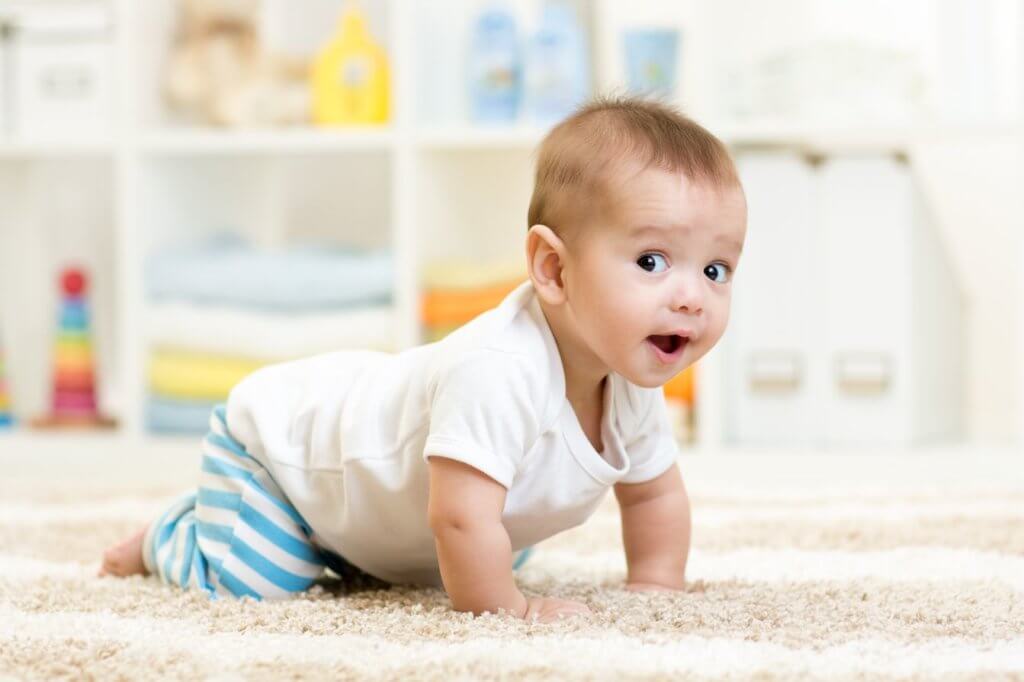
Toddlers usually stay very curious and love exploring the apartment until they're two or three years old
The Best Method of Baby-Proofing Your Home Is Never to Leave the Kid Unattended
Your kid will always be the safest if you’re around making sure nothing bad happens. Even if you take all the measures to create a safe environment, it’s still possible that your kid somehow gets injured. The reality is that even the adults stub their toes on the corners of furniture, but you don’t see them taking those pieces out of their apartment because they’re potentially dangerous. Just stay vigilant and be strict about what the child can or cannot touch. If they reach for something forbidden, let them know that it’s a no-no, and hand them one of the harmless items.
You Don’t Need to Hire an Expert to Learn How to Baby Proof a House
If you’re wondering how much does it cost to baby-proof a house, keep in mind that this shouldn’t be something you’re going to spend a fortune on. It doesn’t even mean that you have to buy all new stuff – a lot of things can be modified, or you can find a DIY way to make your apartment safer. Since you’re relocating during Coronavirus, you probably already have a lot of expenses, so advice on what you should or shouldn’t buy can be very helpful. Take a look at the video below to see what products might be a waste of money.
Check Each Corner That’s at Head-Height of Your Kid to Make Every Room Safe
This is probably the first thing that you’ll hear when learning how to baby-proof your apartment. Get an edge bumper or safety padding for every corner of furniture that’s around your toddler’s height. This is especially important for coffee tables. It could be best to get round ones instead of square. Also, if you have a glass-top table, consider changing it right away. Kids spend a lot of time on the floor, so if they bump their head into the glass, it can have serious consequences.
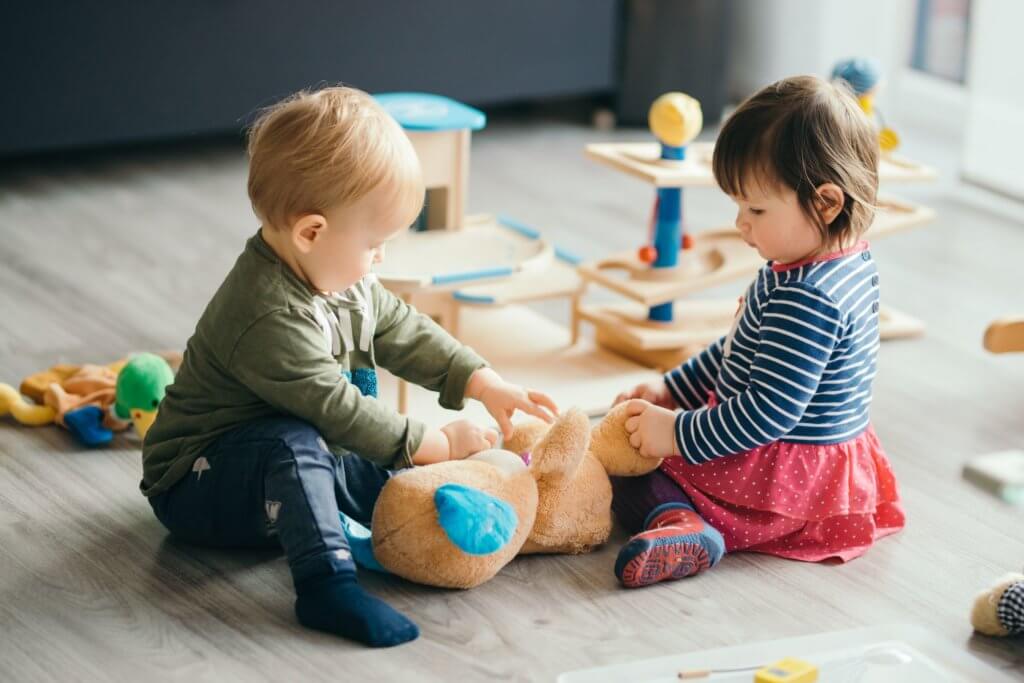
Every corner that's within your baby's reach should be safe to touch
The Crucial Thing for the Safety of Your Kid Is to Remove Everything Sharp, Breakable, and Toxic
Once you learn all the packing tips, including how to pack plates and how to pack dishes, everything will arrive safely at your new place. This also applies to figuring out how to pack glasses and all other fragile items. After you’re done with all of that, it’s time to make sure you have a plan where you will put all of those items. Everything that can break into sharp pieces should be placed on top shelves or somewhere where your baby can’t reach it. This also applies to knives or any other harmful items. If the drawer with silverware is low and your kid has access to it, you can get a child safety lock or simply take everything sharp and put it somewhere else.
On the other hand, after packing pots and pans and unpacking them, you can leave them on the lower shelves with plastic dishes such as Tupperware. Kids like playing with them, and they aren’t harmful.
Pay Special Attention to Babyproofing a Room Where You Keep Toxic Substances
After packing bathroom items, ensure you unpack them so that the kid doesn’t have access to them. If you keep your chemicals and other toxic substances in your bathroom, consider locking it and keeping the key with you. If you have a toddler that’s using the toilet by themself, put all the medicines and detergents in a box and leave it on the top shelf. It’s also smart to have the key with you in this situation so that the kid doesn’t lock themself inside. Be sure you keep the chemicals and medicine in their original packaging with instructions and ingredients, so if it happens that your child swallows something, you’d be able to react more quickly.
Unfortunately, cleaning supplies aren’t the only toxic things that babies are attracted to. If you have plants in your apartment, double-check that you don’t have a poisonous type. Also, if you use some houseplant fertilizer, keep in mind that the kid might try to eat the soil. Try to keep all of the flowerpots somewhere where the kid can’t touch them.
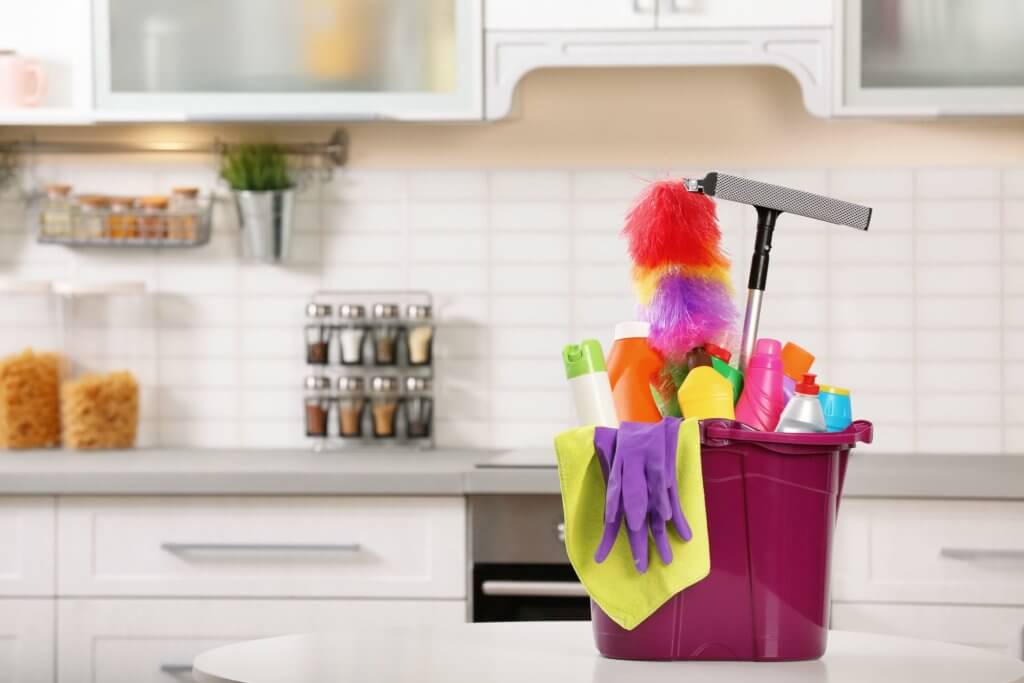
A kid might like colorful bottles of cleaning supplies
Outlets Can Also Be Interesting to Your Kid
The topic of baby-proofing outlets can be sort of controversial since people have different opinions on whether you should put safety plugs or not. Some say that you must and that they’re very useful, while others claim that they’re more dangerous than leaving the outlet as it is. The best is to take the middle road and simply hide the outlets with furniture. Also, ensure that all of the appliances you aren’t using are unplugged. For example, if you leave a curling iron plugged in, your kid might turn it on and burn themselves. Avoid that scenario, and keep everything unplugged, including chargers.
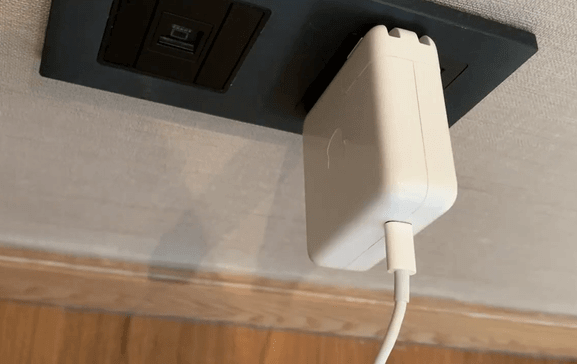
Appliances on the floor could cause a hazard
Some More Useful Babyproofing Tips for Parents
There are a lot of things to pay attention to, but they all depend on the type of your home. Here are some of the most common situations and tips to help you handle them:
- If you moved into an old building, you might have some peeling paint somewhere, so make sure you repaint it.
- If the windows aren’t new, ensure that they’re secured and that they can’t be harmful.
- In case you have some shelves that are taller than they’re wide, you should consider mounting them to the wall. This also applies to large mirrors and TVs that your kid can pull and get hurt.
- If you have rugs on the floor, get non-skid pads for them.
- Use gates if you have stairs or a room that the kid shouldn’t enter. According to the Centers for Disease Control and Prevention, slippery floors and stairs are a high-risk zone.
- The material of your sofa shouldn’t be slippery.
- If you have blinds with cords, either get cordless ones or put the cords high enough since they can cause choking.
- Remember that the child locks on cabinets can damage the surface of the material.
The Nursery Should Be the Safest Place in a Home
It’s wise to have a room in the apartment where nothing can hurt your child. The nursery should be a safe space for your kid when you’re doing chores, or you have to leave them unattended for a couple of minutes. You can consider putting gates on the nursery door so that you can be certain that your kid won’t go anywhere.
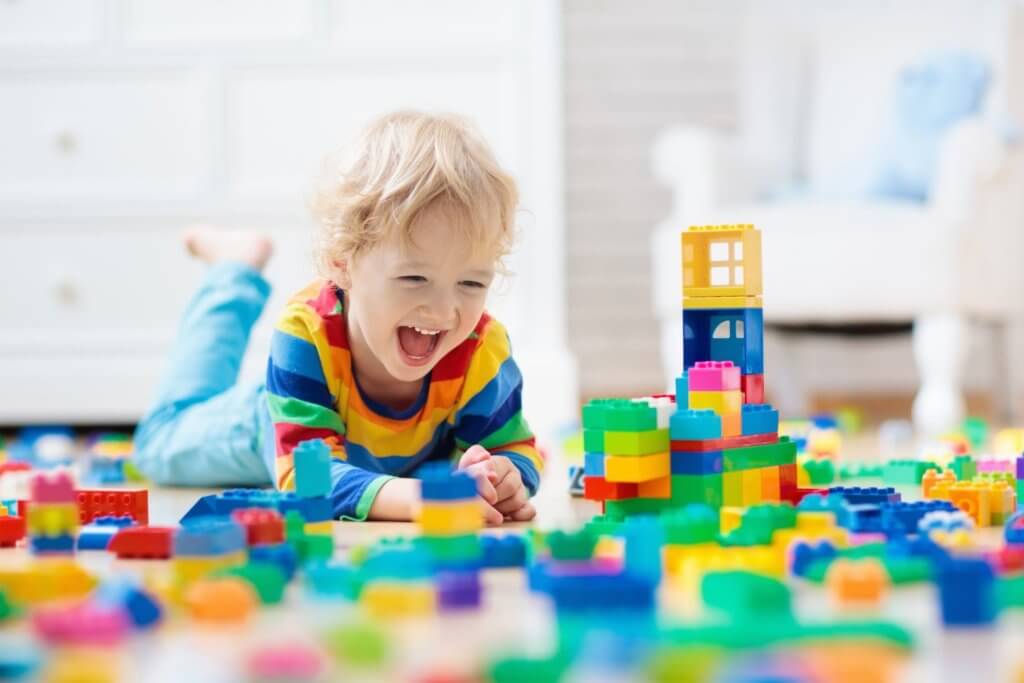
There should be at least one harm-free room
Hiring Long Distance Movers Will Take a Lot of Stress Off of Your Shoulders
Getting help from a cross-country moving company means a lot. No matter if you’re relocating to another state alone, with your family, or relocating for love, long-distance movers near me will do all the hard work for you. The only thing you should do in this stressful time is to know how to get a job in a new city and what do you need to rent an apartment. All other tasks won’t be your worry – a professional long-distance moving company will provide you with all kinds of services you might require, from long-distance moving to auto transport and moving insurance. If you decide to get a packing service, you won’t have to bother with learning how to pack shoes for moving or how to move a piano. Experienced movers will use their boxes and packing supplies and protect all of your belongings, and you can even get a free storage unit for a whole month. Focus on baby-proofing your apartment while professional movers take care of everything else.

